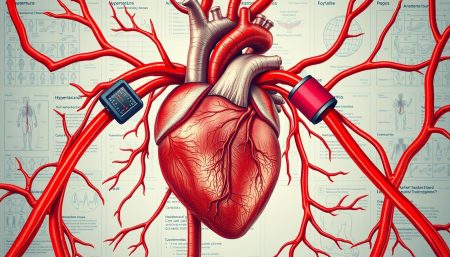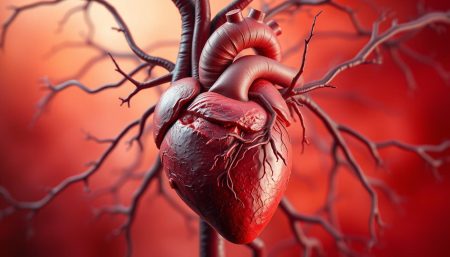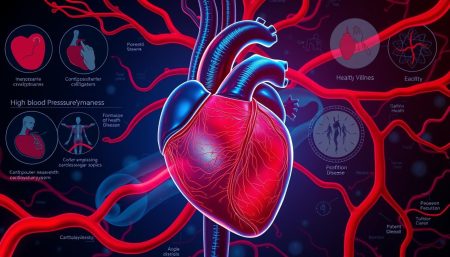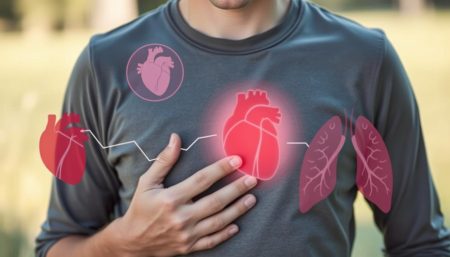Noonan syndrome is a complex genetic disorder linked to heart health. Many ask, “Is Noonan syndrome a cardiovascular disease?” It’s not just a heart issue, but it does affect the heart system a lot. This rare disorder impacts about 1 in 1,000 to 2,500 people, causing big challenges for patients and doctors.
It’s key to understand the heart risks of Noonan syndrome for good care. It can cause heart problems at birth and more issues later in life. Let’s look into the facts about this genetic condition and its big impact on heart health.
Understanding Noonan Syndrome and Its Relationship to Cardiovascular Health
Noonan syndrome is a complex genetic disorder that affects the heart. It impacts heart development and function from birth. This condition is part of congenital heart disease Noonan.
Genetic Basis of Noonan Syndrome
Noonan syndrome comes from mutations in genes that control cell growth and division. These genetic changes cause various health issues, with heart problems being a major concern.
Primary Cardiovascular Manifestations
The heart defects in Noonan syndrome vary. Common issues include:
- Pulmonary valve stenosis
- Hypertrophic cardiomyopathy
- Atrial septal defects
These conditions can be mild or severe. They often need ongoing medical care.
Role of RAS/MAPK Pathway in Heart Development
The RAS/MAPK pathway is vital for heart formation in the womb. Mutations in this pathway can cause heart growth problems. This leads to structural abnormalities. Understanding this is key to treating Noonan syndrome-related heart conditions.
“Noonan syndrome’s impact on the heart highlights the need for early diagnosis and lifelong cardiac care.”
It’s important to recognize the link between genetic mutations and heart defects in Noonan syndrome. This is essential for managing and treating this complex condition effectively.
Is Noonan Syndrome a Cardiovascular Disease – Understanding the Connection
Noonan syndrome is a complex genetic disorder that affects many body systems. It’s not just a heart disease, but heart problems are common. Heart health is key for those with Noonan syndrome.
Research shows that up to 80% of people with Noonan syndrome have heart defects. These can be mild or severe, affecting their life quality and health.
Common heart problems in Noonan syndrome include:
- Pulmonary valve stenosis
- Hypertrophic cardiomyopathy
- Atrial septal defects
- Ventricular septal defects
These heart issues highlight the need for cardiac monitoring in Noonan syndrome. Regular check-ups and early treatment can help manage these problems well.
“Understanding the cardiac aspects of Noonan syndrome is key for patients and healthcare providers. It leads to better management and outcomes.”
Noonan syndrome affects more than just the heart. It also impacts facial features, height, and development. This makes it different from diseases focused only on the heart.
In summary, Noonan syndrome is not just a heart disease. But, the many heart complications mean heart care is vital for managing the condition.
Common Heart Defects Associated with Noonan Syndrome
Noonan syndrome cardiac care deals with several heart defects. These issues greatly affect heart health in Noonan patients. Let’s look at the most common cardiovascular problems linked to this genetic disorder.
Pulmonary Valve Stenosis
This condition narrows the pulmonary valve. It makes it hard for blood to flow from the heart to the lungs. It affects up to 80% of Noonan syndrome patients. Symptoms include shortness of breath and chest pain during physical activity.
Hypertrophic Cardiomyopathy
In this condition, heart muscle thickens. This makes it hard for the heart to pump blood well. It occurs in about 20% of Noonan syndrome cases. Patients might feel tired, dizzy, or faint.
Atrial Septal Defects
These are holes in the wall between the heart’s upper chambers. They let blood mix between the right and left sides of the heart. This defect is present in approximately 25% of Noonan syndrome patients.
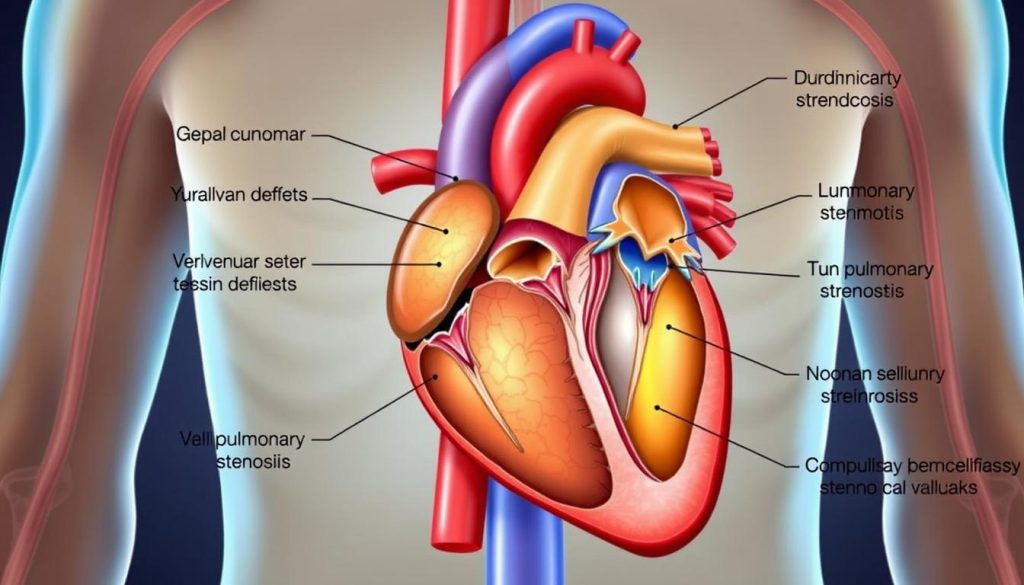
| Heart Defect | Prevalence | Key Symptoms |
|---|---|---|
| Pulmonary Valve Stenosis | Up to 80% | Shortness of breath, chest pain |
| Hypertrophic Cardiomyopathy | About 20% | Fatigue, dizziness, fainting |
| Atrial Septal Defects | Approximately 25% | Often asymptomatic, possible heart murmur |
Knowing these common heart defects is key for Noonan syndrome cardiac care. Early detection and proper management can greatly improve heart health in Noonan patients.
Early Detection and Diagnosis of Cardiovascular Issues in Noonan Patients
Early detection is key in managing heart problems in Noonan syndrome. Doctors use different methods to find and track heart issues in patients. This helps in planning the best treatment for Noonan syndrome.
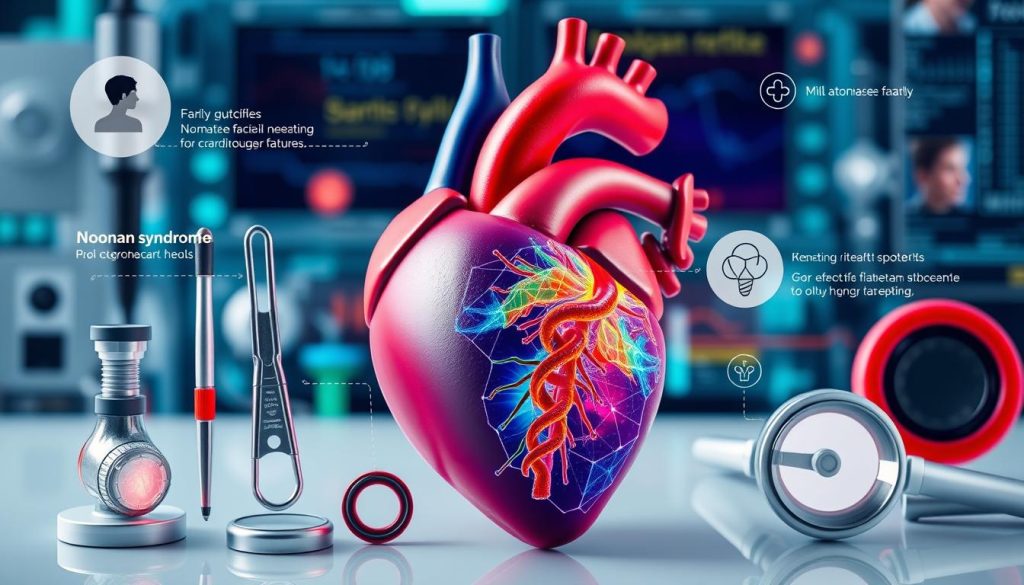
Prenatal screening is the first step to find heart defects. Doctors use special ultrasounds during pregnancy to check the baby’s heart. This early check helps parents and doctors prepare for care after birth.
After birth, echocardiograms are a main tool for managing heart issues. These tests use sound waves to create detailed heart images. Doctors can see the heart’s shape and function. Regular echos track changes over time.
Other imaging tests include:
- Chest X-rays to check heart size and shape
- MRI scans for detailed heart views
- CT scans to examine blood vessels
Blood tests also help in diagnosis. They check for genetic markers linked to Noonan syndrome and heart issues. These tests help doctors tailor their approach to each patient’s needs.
| Diagnostic Method | Purpose | Frequency |
|---|---|---|
| Prenatal Ultrasound | Identify heart defects before birth | During pregnancy |
| Echocardiogram | Assess heart structure and function | Regularly, as recommended by doctor |
| Genetic Testing | Confirm Noonan syndrome diagnosis | Once, typically at initial diagnosis |
Early and ongoing screening helps doctors catch and address heart issues quickly. This proactive approach is key to managing heart issues in Noonan syndrome patients and improving their quality of life.
Genetic Testing and Cardiovascular Risk Assessment
Genetic testing is key for diagnosing Noonan syndrome and checking heart risks. It answers if Noonan syndrome is a heart disease. While it’s not just a heart issue, it does affect heart health a lot.
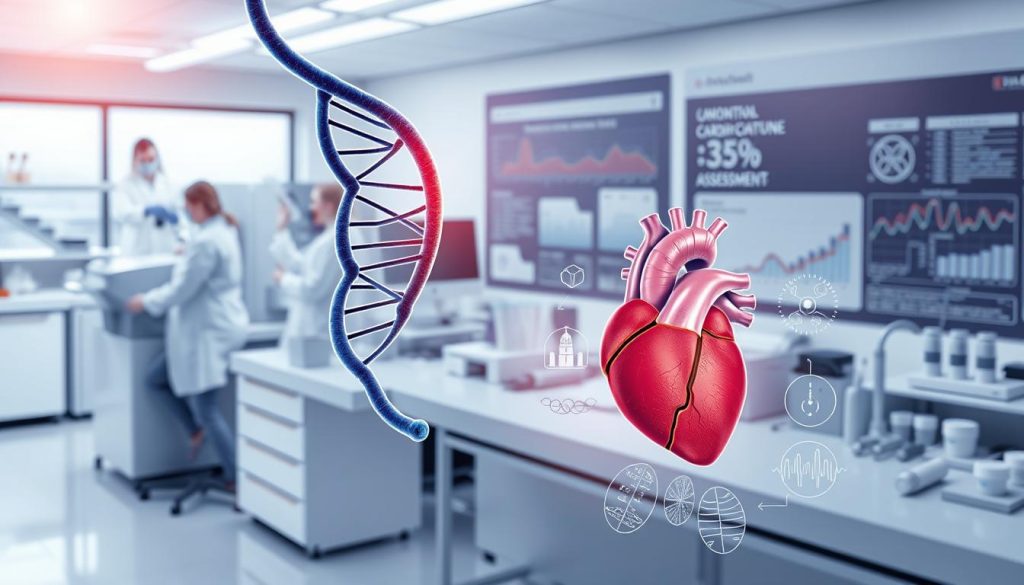
Importance of Genetic Counseling
Genetic counseling is very important for understanding heart risks in Noonan syndrome. Counselors explain test results and talk about how genes are passed down. They also offer emotional support. They help families make smart choices about testing and treatment.
Modern Testing Methods
Today’s genetic tests can find mutations linked to Noonan syndrome. They look at genes in the RAS/MAPK pathway, which are key for heart growth. Next-generation sequencing makes results faster and more detailed.
Risk Stratification Approaches
Doctors use genetic info to figure out heart risks in Noonan syndrome. This helps make care plans that fit each person. They look at things like specific gene changes and family history.
| Gene | Associated Cardiac Risk | Recommended Monitoring |
|---|---|---|
| PTPN11 | Pulmonary valve stenosis | Annual echocardiogram |
| RAF1 | Hypertrophic cardiomyopathy | Biannual cardiac MRI |
| SOS1 | Atrial septal defects | ECG every 6 months |
Knowing about genetic factors helps doctors create better treatment plans. This leads to better health outcomes for those with Noonan syndrome heart problems.
Treatment Options for Noonan Syndrome Heart Complications
Noonan syndrome cardiac care involves a range of treatments tailored to each patient’s specific heart issues. Doctors create personalized plans to address the unique cardiovascular challenges faced by individuals with this condition.
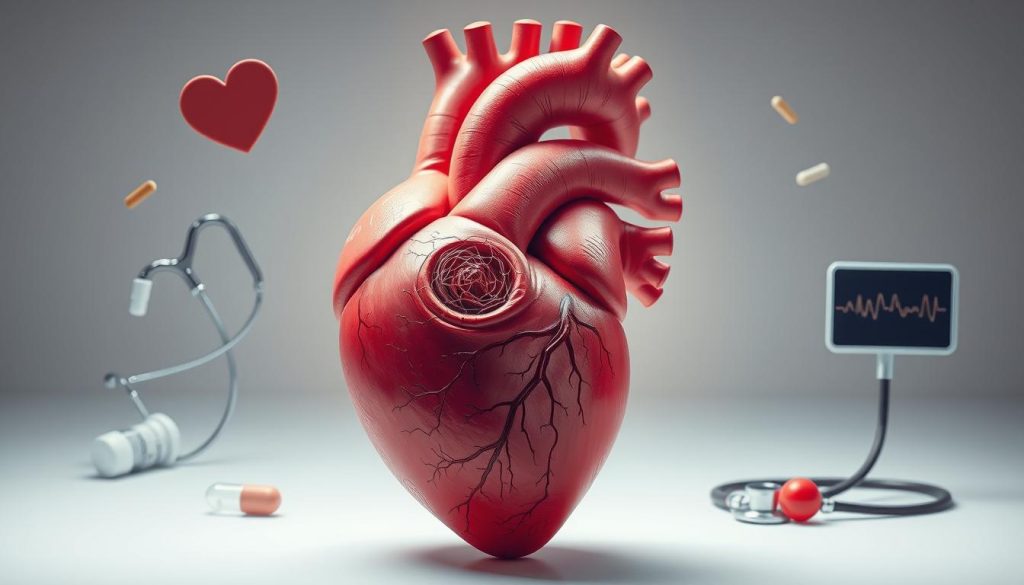
Surgical interventions play a key role in managing severe heart defects. For pulmonary valve stenosis, balloon valvuloplasty is often the first choice. This procedure widens the narrowed valve, improving blood flow. In cases of hypertrophic cardiomyopathy, surgeons may remove part of the thickened heart muscle to enhance cardiac function.
Medication forms another key part of treatment for Noonan syndrome. Beta-blockers help control heart rate and reduce the workload on the heart. ACE inhibitors can lower blood pressure and improve heart function. For patients with arrhythmias, antiarrhythmic drugs may be prescribed to regulate heart rhythm.
| Heart Complication | Common Treatment |
|---|---|
| Pulmonary valve stenosis | Balloon valvuloplasty |
| Hypertrophic cardiomyopathy | Surgical myectomy |
| Atrial septal defects | Catheter-based closure |
Ongoing monitoring is essential in Noonan syndrome cardiac care. Regular echocardiograms and electrocardiograms help track heart health over time. This vigilant approach allows doctors to detect and address any changes in cardiac function promptly, ensuring the best possible outcomes for patients with Noonan syndrome.
Long-term Cardiovascular Care and Management Strategies
Living with Noonan syndrome means a lifelong focus on heart health. Patients must get ongoing care to handle heart problems and stay well. Let’s look at important strategies for managing heart health in Noonan patients over time.
Regular Monitoring Protocols
Regular check-ups are key for heart health in Noonan syndrome. Patients often have regular echocardiograms, electrocardiograms, and stress tests. These tests help spot early changes in the heart.
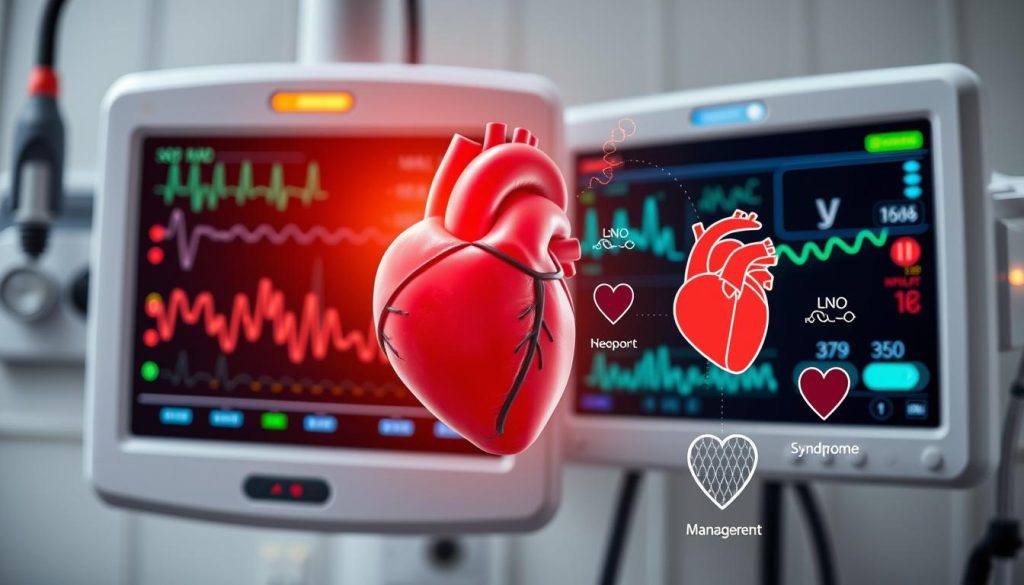
Lifestyle Modifications
Improving heart health in Noonan patients often comes from lifestyle changes. These can include:
- Eating a balanced diet low in sodium and saturated fats
- Doing regular, moderate exercise that fits their abilities
- Using stress management like meditation or yoga
- Avoiding smoking and drinking less alcohol
Medical Interventions
Depending on their heart issues, Noonan patients might need different treatments:
| Heart Condition | Common Interventions |
|---|---|
| Pulmonary valve stenosis | Balloon valvuloplasty or surgical repair |
| Hypertrophic cardiomyopathy | Beta-blockers, surgical myectomy |
| Atrial septal defects | Catheter-based closure or surgical repair |
By mixing regular monitoring, lifestyle changes, and the right medical treatments, people with Noonan syndrome can manage their heart health well over time. This all-around approach boosts their quality of life and lowers heart-related problems linked to the condition.
Impact of Noonan Syndrome on Pediatric Heart Health
Noonan syndrome has a big impact on kids’ heart health. Children with this condition often face unique heart challenges. Early interventions and specialized care are needed.
Congenital heart disease is common in Noonan syndrome patients, affecting up to 80% of them. The most common heart issues include:
- Pulmonary valve stenosis
- Atrial septal defects
- Hypertrophic cardiomyopathy
These heart complications need close monitoring. Pediatric cardiologists are key in managing these issues. They work with genetics specialists for complete care.
Growth is important for young Noonan patients. Heart problems can slow down development. Regular check-ups help track progress and adjust treatments.
“Early detection and intervention are key in managing cardiovascular issues in children with Noonan syndrome.”
Specialized pediatric cardiac care is essential. It meets the unique needs of young Noonan patients. This care includes:
| Care Aspect | Importance |
|---|---|
| Regular echocardiograms | Monitor heart structure and function |
| Growth assessments | Track overall development |
| Genetic counseling | Understand inheritance and risks |
Research is ongoing to better understand congenital heart disease in Noonan syndrome. New treatments and interventions are emerging, giving hope for better outcomes in pediatric patients.
Adult Cardiovascular Considerations in Noonan Syndrome
As people with Noonan syndrome grow older, their heart health needs constant care. The heart issues in Noonan patients change over time. This requires special care plans.
Age-Related Complications
Adults with Noonan syndrome may face new heart problems. These can include:
- Worsening of existing heart defects
- Development of arrhythmias
- Increased risk of coronary artery disease
Preventive Measures
Steps can help keep the heart healthy in Noonan patients as they age:
- Regular cardiovascular check-ups
- Healthy lifestyle choices (diet, exercise)
- Stress management techniques
- Avoidance of smoking and excessive alcohol consumption
Management Guidelines
Effective management of cardiovascular health in adult Noonan syndrome patients involves:
| Guideline | Description |
|---|---|
| Personalized monitoring | Tailored schedules for echocardiograms and ECGs |
| Medication management | Adjusted as needed for blood pressure or arrhythmia control |
| Surgical interventions | Considered for progressing heart defects |
| Multidisciplinary care | Collaboration between cardiologists, geneticists, and primary care |
Healthcare providers can help support the long-term heart health of Noonan syndrome patients. This ensures they get the care they need throughout their lives.
Latest Research and Developments in Noonan Syndrome Cardiac Care
The field of Noonan syndrome cardiac care is growing fast. Researchers are learning more about treating heart problems linked to this condition. New treatments are coming, giving hope for better heart care for Noonan syndrome patients.
Studies are now focusing on the RAS/MAPK pathway, key in heart development. Scientists are looking into targeted therapies for heart defects in Noonan syndrome. These could lead to better heart treatment options soon.
Clinical trials are testing new ways to care for Noonan syndrome hearts. Some trials use MEK inhibitors for hypertrophic cardiomyopathy, a common heart issue. These studies might lead to treatments tailored to each person, improving their lives.
As research goes on, the future of Noonan syndrome heart care looks bright. With a better understanding of the genetics, doctors can offer more precise treatments. This new care landscape offers hope for managing heart problems in Noonan syndrome patients.
FAQ
Q: Is Noonan syndrome mainly a heart disease?
A: Noonan syndrome is not just a heart disease. It’s a genetic disorder that affects many body systems. Heart problems are a big part of it, but it impacts other areas too.
Q: What are the most common heart defects associated with Noonan syndrome?
A: Common heart issues in Noonan syndrome include pulmonary valve stenosis and hypertrophic cardiomyopathy. Atrial septal defects are also common. These problems can be serious and need different treatments.
Q: How is Noonan syndrome diagnosed in relation to heart issues?
A: Doctors use genetic tests, physical checks, and heart scans to diagnose Noonan syndrome. Echocardiograms help spot heart problems. Sometimes, they can find these issues before a baby is born.
Q: What role does genetic testing play in assessing cardiovascular risks in Noonan syndrome?
A: Genetic tests are key in diagnosing Noonan syndrome and understanding heart risks. They find specific gene changes linked to the syndrome. This helps doctors plan care that fits each patient’s needs.
Q: How are heart complications in Noonan syndrome treated?
A: Treatment for heart problems in Noonan syndrome varies. It might include surgery, medicine, or regular check-ups. Doctors tailor the treatment to each patient’s heart issues and needs.
Q: What long-term cardiovascular care is needed for individuals with Noonan syndrome?
A: Long-term care for Noonan syndrome patients includes regular heart checks and lifestyle changes. They might need tests like echocardiograms and stress tests. They should see cardiologists who specialize in heart defects.
Q: Are there different cardiovascular considerations for children vs. adults with Noonan syndrome?
A: Yes, there are differences. Kids with Noonan syndrome need early and specialized heart care. Adults face different heart challenges as they get older. They need specific care for these issues.
Q: What recent developments have been made in cardiac care for Noonan syndrome?
A: New advances include better genetic tests and understanding of heart development. There are also new treatments being explored. Research aims to improve care for Noonan syndrome patients with heart problems.












